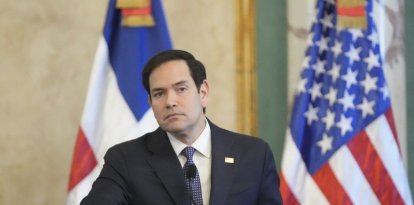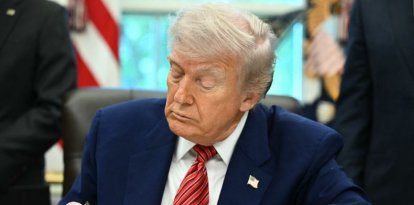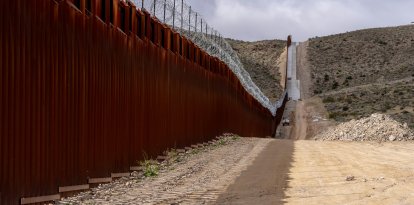Rubio states that Cuba did not cooperate with the US in the fight against terrorism last year
The State Department stated that there are 11 fugitives wanted in Cuba, some of whom are accused of terrorism, and that the regime in Havana is unwilling to negotiate their return to face U.S. justice.

Front view of the U.S. Embassy in Havana, Jan. 14, 2025.
This Tuesday, Secretary of State Marco Rubio blacklisted Cuba for failing to cooperate fully with the country's anti-terrorism efforts in 2024 and sharply criticized the government in Havana for refusing to negotiate to return people residing on the island who have been charged in the U.S. for various crimes.
In an official statement, the State Department noted that the Cuban regime refused to discuss returning at least 11 fugitives from U.S. justice living on the island, some of them accused of terrorism-related crimes.
William Morales, a bomb maker for a Puerto Rican militant group responsible for 1975 bombing of a New York tavern that killed four people, and Joanne Chesimard—known in Cuba as Assata Shakur—who was convicted of murdering a New Jersey state trooper in 1973.
Both escaped from prison in the U.S. and eventually fled to Cuba, where Fidel Castro gave them refuge.

Politics
Marco Rubio wants to "hold the Cuban regime accountable" for the US fugitives it harbors
Diane Hernández
Efforts to work with Cuba on anti-terrorism issues were "futile" in 2024
In 2024, Rubio said the Cuban regime’s refusal to address the issue—along with other unspecified “recent circumstances” suggesting a lack of cooperation on terrorism-related law enforcement—made efforts to work with Cuba on counterterrorism “futile.”
"Today's certification that Cuba is not fully cooperating with U.S. counterterrorism efforts is further evidence that the Trump Administration will not ignore countries that provide safe haven to U.S. fugitives," the report states.
The Secretary of State’s annual certification to Congress of countries that “do not fully cooperate” in counterterrorism efforts bars the sale or export licensing of defense articles and services to those nations.


World
Trump Administration reinstates and expands Cuba Restricted List, adding remittance company tied to Castro regime
Emmanuel Alejandro Rondón
Cuba: state sponsor of terrorism
While the two are distinct classifications, Cuba is also designated as a State Sponsor of Terrorism.
On his first day in office, President Donald Trump reversed his predecessor’s last-minute decision to remove Cuba from the State Department’s list of State Sponsors of Terrorism. President Joe Biden had taken Cuba off the list as part of a Vatican-brokered deal in which Havana agreed to release dozens of political prisoners.
The controversial arrangement fell apart after Trump took office and the Castro regime stopped releasing political prisoners.
Cuba also recently re-imprisoned two prominent dissidents.

World
The Cuban regime revokes the parole of dissidents José Daniel Ferrer and Félix Navarro
Williams Perdomo
Cuba’s brief removal from the State Sponsors of Terrorism list under the Biden administration was preceded by a decision in May of the previous year to drop the country from the separate blacklist of nations “not fully cooperating” with anti-terrorism efforts.
In addition to Cuba, Rubio has also identified North Korea, Iran, Syria, and Venezuela as countries that do not fully cooperate with the U.S. in its fight against terrorism.
Tough entry conditions for vessels from Cuba
The new policy, issued by the Department of Homeland Security, took effect on April 2, 2025, and was published by the U.S. Office of the Federal Register.
According to the document, the Coast Guard may restrict entry to vessels coming from foreign ports that it determines lack effective anti-terrorism protocols.
In addition, DHS considers any port under the jurisdiction of a government designated as a State Sponsor of Terrorism to be automatically deficient in anti-terrorism measures and subject to immediate sanctions.

























